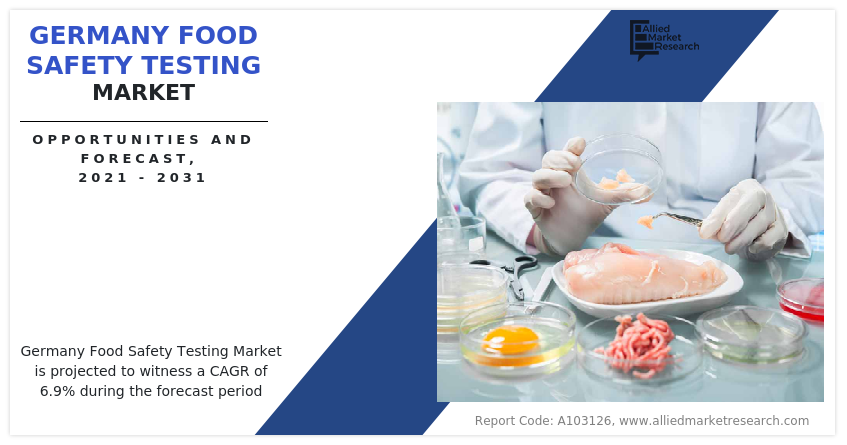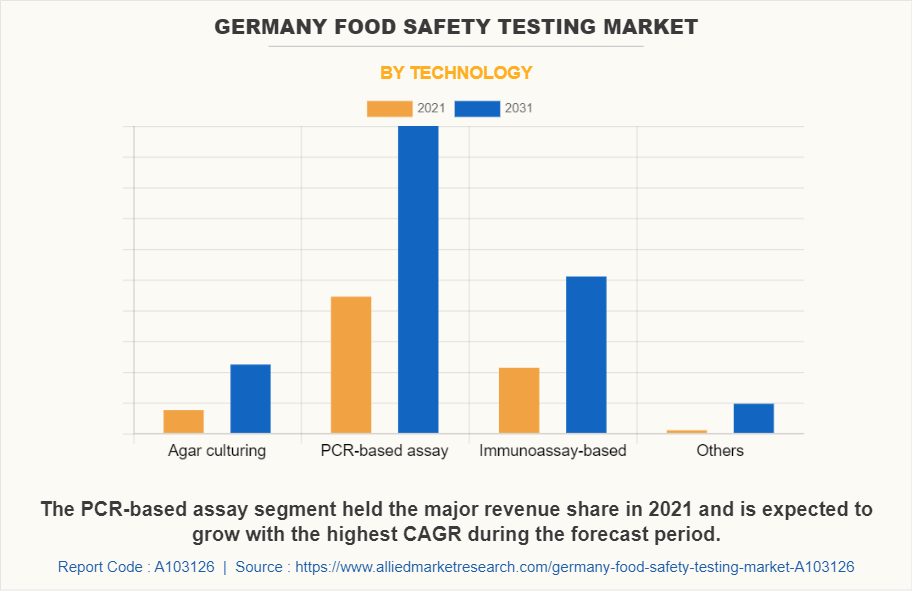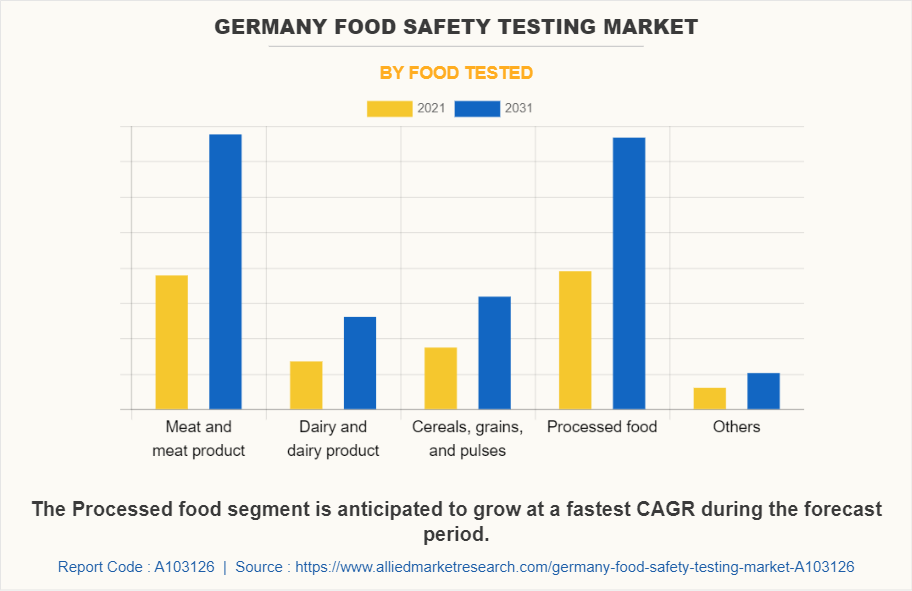Germany is an influential force in the European Union when it concerns food safety and screening. In the past decade, the country has actually seen a surge in investments towards food safety innovations, as concerns about food-related health problems and also contamination increases worldwide. This has actually driven substantial growth in the Germany food safety testing market, which is anticipated to continue in the coming years. Food security testing is not only necessary for identifying possible contamination as well as stopping condition, but also for gaining access to new export markets and conference strict laws enforced by governing bodies. Rising awareness amongst consumers relating to food safety, contamination, as well as health and wellness threats is anticipated to further drive the demand for food safety testing in the country. In spite of the high expense of equipment, Germany has seen investments in food security testing modern technologies such as agar culturing, PCR-based assays, immunoassay-based, and also others as a result of its international online reputation for food security.

In addition, Germany is committed to lowering the effect of food-borne ailments by applying stringent high-quality standards. For this reason, the country concentrates on purchasing advanced technologies that help determine impurities quickly, supply reliable outcomes, and lower food putridity which is a key factor driving the market. In addition, various government and market authorities are introducing food safety requirements, policies, and campaigns to promote safe production and usage of food which is driving the Germany food safety testing market. However, rise in the occurrence of counterfeited food and products containing forbidden or possibly unsafe substances is a significant hindrance for the market growth. Moreover, lack of awareness among customers and food manufacturers, along with budgetary restraints, can detrimentally affect the market development in the future.


The Food Security and Supply Act, Germany, 2019 is the primary regulatory act governing food security, health, and traceability. The Act imposes stringent policies on food labeling, product packaging, and other food safety concerns. In addition, businesses are required to make certain of the traceability & stability of food and to prepare for Hazard Analysis and Critical Control Point (HACCP). The German Federal Office of Consumer Protection and Food Safety (BVL) is accountable for keeping track of food safety regulations and enforcing them. The Germany food safety testing market is segmented into technology, food tested, and type. On the basis of technology, the market is segregated into agar culturing, PCR-based assay, Immunoassay-based, and others. The agar culturing segment has the largest market share as a result of its effectiveness and cost-effectiveness in testing food. Based on food tested, the market is bifurcated into meat & meat product, dairy and dairy product, cereals, grains &pulses, processed food, and others. By type, the market is fragmented into pathogen, genetically modified organism (GMO), chemical & toxin, and others.
Germany is a highly developed and technologically advanced country, and as a result of its food-services that are highly regulated. With its stringent food safety regulations and a high level of recognition concerning food-borne illnesses, the need for food safety testing is anticipated to continue to be high during the forecast period. In addition, technical breakthroughs such as connected devices and IoT are permitting food safety testing devices to be used from another location and offer real-time monitoring of food products which is a key factor driving the market growth. Germany is the global leader in food safety testing modern technologies. As such, the country is expected to witness the highest growth rate and the largest market share globally. At the same time, the Asia-Pacific area is anticipated to witness the fastest development price in the market due to rise in financial investments in food safety testing technology, development in the food & drink market, and change in the way of life patterns.
Key Benefits For Stakeholders
- Enable informed decision-making process and offer market analysis based on current market situation and estimated future trends.
- Analyze the key strategies adopted by major market players in germany food safety testing market.
- Assess and rank the top factors that are expected to affect the growth of germany food safety testing market.
- Top Player positioning provides a clear understanding of the present position of market players.
- Detailed analysis of the germany food safety testing market segmentation assists to determine the prevailing market opportunities.
- Identify key investment pockets for various offerings in the market.
Germany Food Safety Testing Market Report Highlights
| Aspects | Details |
| Forecast period | 2021 - 2031 |
| Report Pages | 86 |
| By Food Tested |
|
| By Type |
|
| By Technology |
|
| Key Market Players | Merieux Nutrisciences, Bureau Veritas, Eurofins Scientific, ALS Limited, Thermo Fisher Scientific Inc., Intertek Group Plc, AsureQuality, TUV SUD, SGS Group, QIMA |
The Germany Food Safety Testing Market is projected to grow at a CAGR of 6.9% from 2021 to 2031
1. Enable informed decision-making process and offer market analysis based on current market situation and estimated future trends.
2. Analyze the key strategies adopted by major market players in germany food safety testing market.
3. Assess and rank the top factors that are expected to affect the growth of germany food safety testing market.
4. Top Player positioning provides a clear understanding of the present position of market players.
5. Detailed analysis of the germany food safety testing market segmentation assists to determine the prevailing market opportunities.
6. Identify key investment pockets for various offerings in the market.
Germany Food Safety Testing Market is classified as by food tested, by type, by technology
Loading Table Of Content...
Loading Research Methodology...



